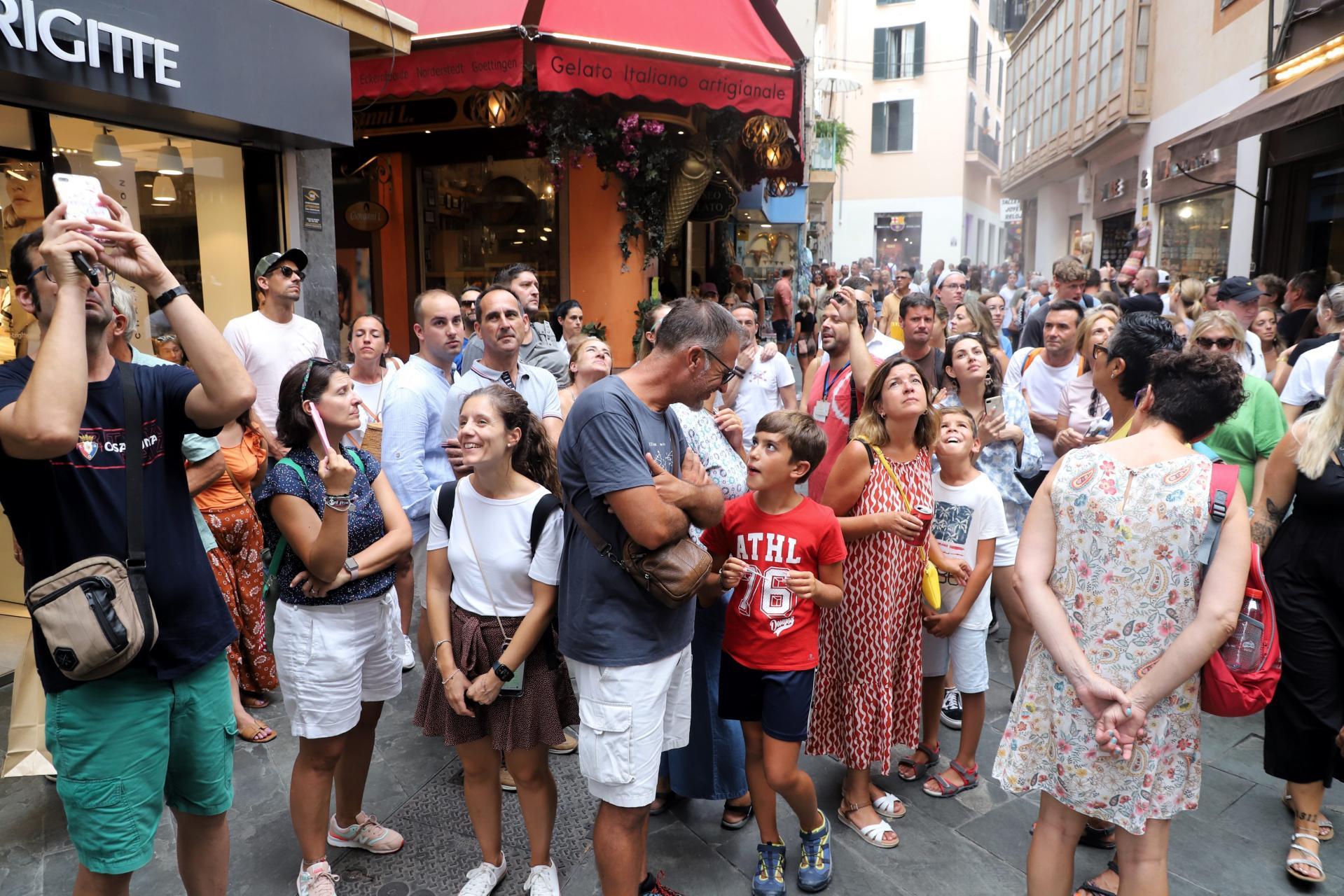The president of the environmentalist organisation GOB, Amadeu Corbera, argues that there needs to access control of tourists in Palma, "as is already the case in Venice* and Dubrovnik".
He says that the situation has been getting worse every year. A state of "absolute collapse" was already evident as early as 2015, and he adds that "there is a fallacy in thinking that what happens in Palma has no impact on the rest of the island". "The fact is that it gets overwhelmed at the same time. Palma is the result of a decade of tourism 'de-planning'. What happens in Palma has serious impacts on surrounding municipalities."
In the case of holiday rentals, Corbera explains that "there is a structure and there are laws that allow it". "We must not forget that it was Biel Barceló (of Més) who allowed holiday rental. It is true that there was talk of democratising tourism (against hotel dominance), but it has led to a real-estate bubble on the island."
He accepts that Palma town hall has tried to put an end to holiday rental (of apartments) and that the intentions of the town hall have been "good", such as with the promotion of recycled waste collection. "But in the general urban plan there is still a commitment to more urban growth."
Corbera advocates the property law concept of numerus clausus and for it to be applied to the whole island, this being - in general terms - a limitation on the types of right that characterise the notion of property. "The welfare of residents is at stake. The politicians do not have control of the territory, yet they meanwhile carry out more tourism promotion."
The GOB president has made his observations against a background of the revived debate about tourist numbers and overcrowding and also of the pressure on resources and services in Palma.
The municipal services agency Emaya reports that average demand for water consumption in July was 112,841 cubic metres per day. In July last year it was 106,718 cubic metres.
The maximum peak so far this summer, excluding August, for which figures aren't yet available, was on July 25 - 115,625 cubic metres. The daily maximum in July 2021 was 108,824 cubic metres. Even so, Emaya says that Palma water supplies are "guaranteed". The city is not at a state of pre-alert for drought, and there is water availability in wells and reservoirs.
As for waste collection, the most recent figures are for June and indicate a 10.7% increase compared with 2021. In June, 20,836 tonnes were collected. Last year, there were 18,821 tonnes and in 2020 there were 18,405 tonnes. In June 2019, prior to the pandemic, the volume was 21,664 tonnes.
* In 2023, Venice is to introduce a daily payment system for entering the city.


1 comment
To be able to write a comment, you have to be registered and logged in
What Mallorca has NOT done for Decades is making alternative attractions for Tourists to attend. When there is no Sun and no use of the Beach. Tourists have little choice as to what to do. Also they pack the Buses and use Taxis to the maximum. The obvious attraction is shopping in Palma. The trains are full too. BUT WHAT ELSE IS THERE TO DO IN MALLORCA WITH NO SUN JUST RAIN.